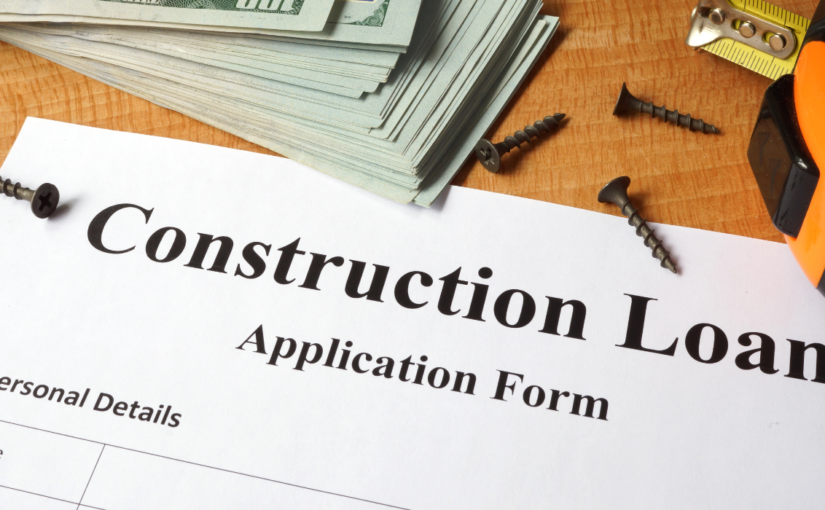back
Construction Loan vs. Home Equity Loan: What’s the Difference?
04-2023

A construction loan or a home equity loan may be the best option if you need to borrow money for a significant home renovation project. Home renovations can be funded by any sort of loan, but each has its own specifications and conditions. To assist you in determining which loan best suits your needs, we’ll compare construction loans with home equity loans in this blog post.
Construction Loans
An important house improvement or new home construction might be financed with a construction loan. These loans often have terms of one to three years and are intended to be paid back once the construction is finished. A significant down payment is frequently required for construction financing, ranging from 20% to 30% of the project’s overall cost.
Construction loans differ from conventional mortgages in that they are based on the project’s value when it is completed rather than the property’s value prior to development. In other words, the lender will estimate the loan amount by estimating the worth of the finished project.
In addition, construction loans often have an interest-only period throughout the development phase, which is another way they differ from home equity loans. This indicates that until the construction is finished, you will only be needed to make interest payments on the loan. When the building is finished, the loan will turn into a regular mortgage, and you’ll start paying principal and interest.
One advantage of a construction loan is that you can use it to pay for the full project’s costs, including the price of the land and any fees or licenses required. This can be advantageous if you’re constructing a new house because you can finance the full project’s cost with a one loan.
However, because they frequently demand a high credit score and a low debt-to-income ratio, construction loans can be challenging to qualify for. Along with thorough designs and specifications, you must also include a complete budget and schedule for the project.
Home Equity Loans
You can borrow money with a home equity loan, which lets you use the value of your house as collateral. Equity is the difference between your home’s current worth and the total of your mortgage debt. Loans against your home’s equity are frequently used to pay for home improvements, debt relief, and other significant expenses.
Loans for home equity are secured, thus the lender will use your house as security. This means that the lender has the right to seize your home if you are unable to pay back the debt.
One advantage of a home equity loan is that you can take out a sizable loan with a rather low interest rate. Due to the fact that they are secured by your house, home equity loans often have lower interest rates than other loan kinds.
Because they are based on the value of your house and your credit score, home equity loans are also simpler to qualify for than construction loans. To be eligible for a home equity loan, you must still have a strong credit history and a low debt-to-income ratio.
The fact that you can utilize the money for anything other than house improvements is another advantage of a home equity loan. If you need to finance any further sizable expenses, this may be useful.
Which Loan is Right for You?
It’s crucial to take your individual requirements and financial circumstances into account when choosing between a construction loan and a home equity loan. A construction loan may be the ideal choice if you’re building a new house or making significant home renovations because it enables you to fund the full project and often has cheaper interest rates than other forms of loans.
However, a home equity loan can be a better choice if you’re trying to finance smaller home improvements or other significant costs. Home equity loans feature lower interest rates than other forms of loans and are generally easier to qualify for.
It’s crucial to remember that both kinds of loans have dangers and disadvantages. Construction loans may need a sizable down payment and can be challenging to qualify for. The use of your property as collateral for home equity loans, however, poses a danger if you are unable to make your payments.
It’s crucial to conduct research and contrast the conditions and needs of various lenders before choosing a loan. To assist you in navigating the lending process and locating the best loan for your needs, think about working with a financial counselor or mortgage broker.
In conclusion, loans for construction as well as loans for home equity can both be useful tools for paying for house improvements and other significant expenses. You may make an informed selection and select the loan that’s best for you by being aware of the distinctions between these two sorts of loans, taking into account your individual circumstances, and managing your finances.
F2H Capital Group is a debt advisory firm specializing in negotiating the best terms for your commercial real estate projects. The company offers a range of financial products and services, including fixed loans, bridge loans, and construction loans across all asset types. Please contact us for any of your financing needs.

